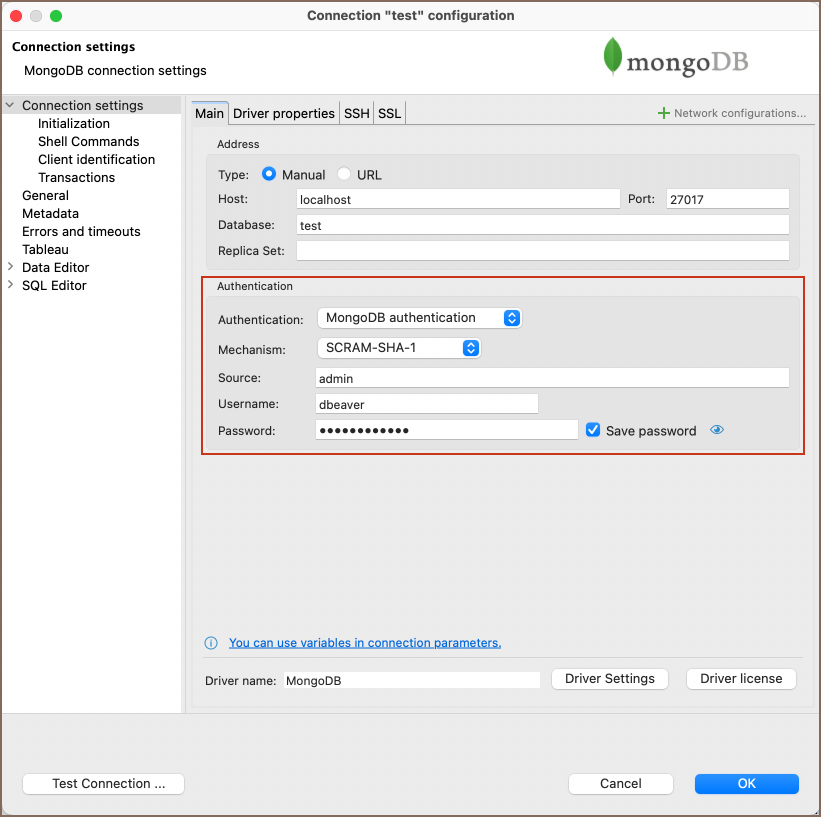Authentication MongoDB
Overview
DBeaver is fully compatible with the MongoDB authentication method, offering you a secure way to access your MongoDB databases.

Settings
Here are the steps to configure MongoDB authentication:
From the Authentication dropdown menu, select the MongoDB authentication method.
From the Mechanism dropdown menu, select an option. The following table outlines the available authentication mechanisms:
| Mechanism | Description |
|---|---|
| SCRAM-SHA-1 | A password-based authentication mechanism using SHA-1 hashing algorithm. Suitable for securing data transmissions. |
| SCRAM-SHA-256 | An upgraded version of SCRAM-SHA-1, using the stronger SHA-256 hashing algorithm. Offers enhanced security. |
| MONGODB-CR | A protocol specific to MongoDB, utilizing a challenge-response mechanism for authentication. |
| PLAIN | A simple, unencrypted password-based authentication mechanism. Not recommended for production environments due to security vulnerabilities. |
| GSSAPI | Based on the Kerberos protocol, this mechanism offers secure password authentication. |
| MONGODB-X509 | A certificate-based authentication mechanism that validates the client's X.509 certificates. |
| NONE | No authentication is required. This method should only be used in secure, isolated environments. |
You can read more about these mechanisms on the MongoDB documentation page.
Fill in the Source field if necessary.
Enter the username and password in the Username and Password fields respectively.
Tip: If you check the Save credentials locally option, you will not be asked to input your credentials every time you connect.
Once you have input your credentials, click the Test Connection button to verify your settings. If everything is configured correctly, DBeaver should now be able to connect to your database using the MongoDB authentication method.
